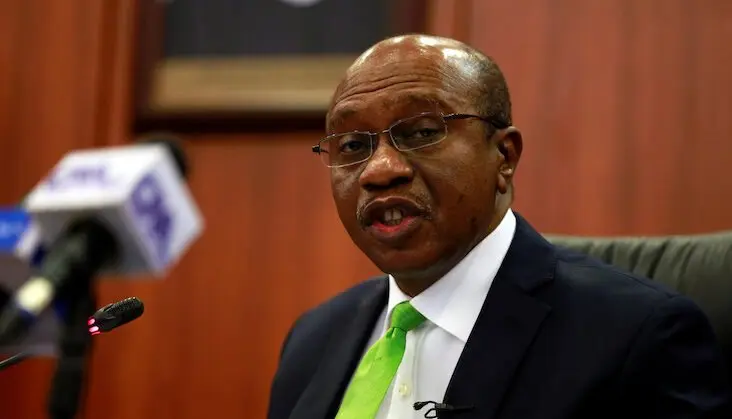
Added to the economic slowdown and cash crunch challenges that took the shine off the 2023 festive period, sluggish payment digital channels have compounded the woes of Yuletide.
The challenge of cash crunch across the country has forced many bank customers to switch to electronic channels to meet their transaction needs. However, from Lagos to other parts of the country, many Nigerians, who have flocked to e-payment channels, expressed frustration with the incessant transaction failures amid several bank charges.
The troubled e-payment channels include automated teller machines (ATMs); point of sales (PoS) terminals, Nigeria Interbank Payment System (NIP) and the unstructured supplementary service data (USSD).
Checks by The Guardian showed that a large number of ATMs spread across the country failed to dispense cash. Since the introduction of the Central Bank of Nigeria’s cashless policy in 2011, ATMs have played a vital role in achieving the initiative.
As at 2011 when the policy was introduced, the total number of ATMs across Nigerian banks was 10,000. But the figure grew to 17,000 in 2015 and 18,000 in 2017, before reaching 22,500 across banks as of December 2022.
Although the growth from 10,000 in 2011 to 22,500 in December 2022 was phenomenal, the growing number of bank customers and the queues experienced at ATMs, especially during the festive season suggest that the current 22,500 ATMs are insufficient to meet the cashless policy initiative of the CBN. Though, banks have formed the habit of just putting money in three out of seven ATM terminals both onsite and offsite.
As of the beginning of 2023, there were about 2.32 million registered Point of Sales (PoS) terminals, while 1,824,428 were active. As witnessed in March and April this year during the reign of the cash withdrawal limit and naira redesign policy of former CBN Governor, Godwin Emefiele, PoS operators have resumed the extortion of customers, claiming they could not get cash from banks.
As such, charges have increased by about 80 per cent. For instance, N50,000 withdrawal attracts N1500 in cities and more in rural communities. While the challenge encountered via ATMs and POS terminals remains, usage of the USSD platform was encumbered during the festive period as there were complaints of failed transactions.
Some Nigerians, who made use of the platform, complained that they were deducted with the transfer not getting to the expected destination.Recall that the deposit money banks (DMBs) still owe telecom operators, whose infrastructure is used for the transfer, N200 billion. While the debt kept increasing due to usage of the platform, the crisis over the platform between DMBs and telcos have lingered for about four years, with the telcos promising to disconnect the former if the matter is not addressed adequately well and timely.
Bank transfer apps also did not help matters this period, taking Nigerians back to the crisis suffered earlier in the year, where transactions failed intermittently.
Then, the banks claimed to have resolved about 60 per cent of all failed transactions, leaving huge money hanging, unresolved and reaping customers’ funds.
During this period, transactions via bank apps compounded the festive season crises, as users experienced huge delays in completing a transaction.
For instance, for about four days, it was extremely difficult to carry out any form of transactions via Access App. The app was completely paralysed, bringing frustration to people. To equally carry out simple USSD transactions was a herculean task as there were repeated failures. Amidst all these, the banks still deduct charges from customers.
Narrating his experience with The Guardian, Oshodi-based customer, Gbenga Adekunle, said: “Banking apps have been very slow and frustrating this festive period. We couldn’t get money from the banks as it were. The app problem is general… all banks are the same. I think it is a general problem. We don’t know when it will be resolved.”
Another customer based in Surulere, Lagos, Chinedu Okonji, said he used his mobile banking App to transfer money to his relative twice and the transactions were reversed.
The challenge of Linus Okonta, another customer, has to do with non-dispensing ATMs.“You will get to ATMS, seven in a row. But only one will be dispensing money. How do you explain that? That is why you see queues, I mean long queues at ATM terminals. Even after queuing, you are not sure of getting the funds. They have become daily experiences.”
The challenges spread across the country. As customers in Lagos face it; so are those in other states.For instance, some Ogun residents have called on banks to be more professional, especially in their customer service operations.
Narrating her experience, Abeokuta-based Mary Adegbite, a working-class student, said: “My worst experience with the ATM was when I was stranded at Ayobo. I tried withdrawing from the nearest ATM terminal, but after waiting for more than 30 minutes, the terminal stopped dispensing. I was told the machine was out of cash. I got stranded because I did not have the cash to even move from one location to another.”
Meanwhile, NIBSS has kept mute on the status of e-payment transactions in the country for the past nine months. The last update was at the end of the first quarter of 2023, where volumes and values of electronic payment transactions climbed from N37.6 trillion in February to N49.4 trillion by March.
As of then, analysis of the statistics showed that PoS transactions volume rose from 113.53 million in February to 177.93 million in March, with the value also rising from N883.4 billion to N1.152 trillion, representing a surge of about 30.41 per cent.
Further, the NIBSS Electronic Fund Transfer (NEFT) transactions increased by 20.52 per cent to N2.08 trillion in March from N1.73 trillion in February. Similarly, the report said that the value of NIBSS Instant Payment (NIP) transactions jumped by 31.37 per cent to N48.33 trillion in March from N36.79 trillion in the previous month.
The data also showed that cheque transaction volume increased to 426,926 in March from 333,952 in February with values put at N283.4 billion in March as against N238.4 billion in February.
In terms of transactions carried out through the mobile devices as captured by the system, the volume rose from 183,687.1 in February to 380,110.94 in March. The value rose from N2.56 trillion in February to N4.14 trillion a month after.
Speaking with The Guardian on the actions of PoS operators, newly elected General Secretary, the Association of Mobile Money and Bank Agents in Nigeria (AMMBAN), Oluwasegun Elegbede, said members should not be blamed because it wasn’t their fault.
Elegbede said there is still in force, the CBN cash withdrawal limit, saying banks prorate amounts to be given out, saying the banks claimed that what they are getting from the Apex bank is not enough to go around.
“As an agent, our stock in trade is cash. The extent to which an agent goes to secure cash, the cost incurred while striving to get the cash will also inform the cost to be charged. We also need to pass the cost back to the customer so that you can recoup your money. It is not that anybody wants to jack up charges to exploit the process, the fact is that it has to be a win-win situation. The agents too are not supposed to lose their earnings too,” he stated.
However, Elegbede, the former national public relations officer of AMMBAN, said “the body is working to ensure massive reassessment of all agents under the umbrella to weed out those unscrupulous ones, tarnishing the image of the association. There will be a unique identifier for members by 2024. We shall be looking for ways to get cash for members to aid the businesses, which will subsequently rub off well on the public.”
On the challenges dragging the banking community, a telecoms and technology expert, Kehinde Aluko, said there is serious pressure on banks’ tech infrastructure.
Aluko said “The major problem the banks are having is the capacity of their technology. Most of them are overwhelmed by the volume of transactions. Unfortunately, the systems are not consistently active. These network problems are very prevalent when the systems are clogged with so many things.
“I can imagine that some of the banks have their systems over-clogged with numerous transactions, otherwise, such transactions should bounce back. But if they don’t, they don’t have to go to a bank’s income account. The money must be somewhere. Banks can then do a reconciliation and credit the affected customer. However, the best would have been that when the transaction fails, it should bounce back to the owner’s account.”
Aluko urged the DMBs to fortify their systems, saying 21st-century banking operations should be swift and seamless, “but lately, the banking public is not served adequately well.”
While commending the efforts of the Fintech companies, Aluko said: “They rescued Nigerians earlier in the year and they did the same later in the year. Assuming there were no Fintechs, the crisis would have been overwhelming on the public.”
He, however, claimed that it is not as if the operations of the Fintechs are 100 per cent seamless, “they still have issues too! Some of them are so porous, so users need to be security conscious as well so as not to fall prey to cybercriminals.”




